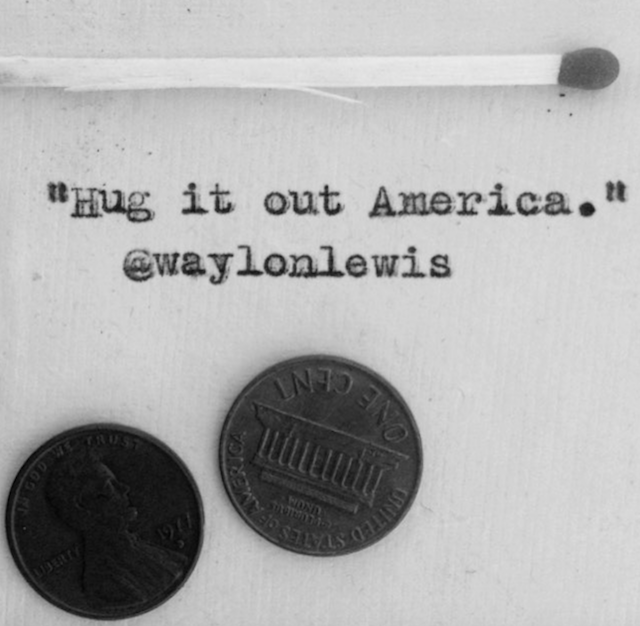There’s been so much on my mind lately, I’ve had this problem that I think about more than sleep.
Even my dreams are offering up ideas and trying to sort out all of the messages running riot in my head. I have a lot to say, and maybe that’s because for a long time I wasn’t saying much when I did talk.
I became the expert at avoiding the elephant in the room, which was, in my case, a marriage that was broken. But I could have full conversations, and connect with people, and allow that particular fact to disappear in a sleight of hand—or at least distract from it enough that it was never mentioned directly.
But the thing is that I have committed to an authentic life. I’ve made promises to myself to be brave and to be honest. At first, I thought I shouldn’t write this because no one will want to read about it—particularly if it confronts their own attitudes and opinions.
Confronting people is uncomfortable. It’s probably one of the things I hated most about being a therapist. People think therapy is all about making people feel better, but it’s really about confronting people so that they can grow from it. It’s pretty f*cking uncomfortable for everyone involved sometimes.
I’ve grown uncomfortable in the last couple of years with the labels I’m seeing being applied freely within my own social circles. (I should preface this by saying that my social connections are divided fairly evenly between conservative and liberal and independent schools of thought.) I myself have been on both sides of the spectrum, so I have particular insight about what makes each side tick. Throw in my education and work as a therapist, and I also understand a little of human thoughts and behaviors.
We’re allowing the labels we put on our differences to break us down. Here are just a few that come to mind, though I’m sure both sides could think of many more:
Bleeding Heart Liberal. Take those words. Pull them apart. Bleeding heart. Liberal. This is a description of people who are capable of feeling the pain of others, and fighting for causes beyond the ones that effect them directly, because they have that kind of love for humanity. This is used as a derogatory statement, an insult to those who champion social justice. Why?
Libtard. Did you cringe? Because I sure did. I understand the implications, and it’s an all-around offensive term. Yes, I know it’s meant to be. But it does make me think of developmental delays, and if you look at history, I think you’ll see that it’s often the conservative sides that have failed to change with the times. Are all changes good? Of course not. But we’re not talking about progress for the sake of progress. Most liberal-leaning folks are seriously just trying to make sure that all human beings are accorded a basic level of decency (human rights).
Snowflake. I am flabbergasted that this is an insult. I sort of preen when I get called a snowflake. Do you mean lovely and unique? Why, yes, I am! Seriously though. Why do we call someone a snowflake because that person is having a difficult time with the changes in our country and may actually feel the need for a safe space? (I’ll get to Safe Space in a minute.) This seems like an insult that’s supposed to conjure up being delicate and weak, but I’m just going to choose to see this one as a compliment, so carry on!
Safe Space. Do you know what they call a space inside of a church? They call it a sanctuary. A sanctuary is a safe place. I hope I didn’t just rip anyone’s worldview to shreds here, but that’s exactly what a safe place is—a place where people feel protected, a place where people can go where they won’t be harmed. I hope that we all refrain from mocking and deriding those who see a need to go to a church sanctuary to practice their faith. But equally we need to refrain from mocking and deriding those who seek a safe space elsewhere. In their schools. In their neighborhoods. On public transportation. In their communities. This might be hard to understand for people who haven’t thought beyond their own privilege and/or life experiences, but as a woman, I understand the need for safe spaces. For as long as I can remember, I have had to be on guard in public places to guard against being attacked. When I was in college, I was followed home from work by a sexual predator, and even my own home didn’t seem like a very safe space. So I try not to deride others for needing a safe space when I understand why they might.
Politically Correct. I am baffled that this offends people. Think about that: Being PC offends someone! That just takes the cake. I was recently watching the sitcom “Last Man Standing.” I like Tim Allen, and while I don’t agree with some of the stances on the show, I like how they handle most of them and respect it. But there was an entire episode about being PC that really made me want to have a—forgive the Southern expression—come-to-Jesus talk with whoever wrote that particular episode. People started being politically correct as a response to the other way of living, which is normalizing hate rhetoric. It became unacceptable for people to use a lot of really ugly hate speech because it was seen as unpopular and unevolved. Now people complain that they aren’t allowed to say just whatever they want without thinking about other people. Sure, some people may take this to extremes, but I think being politically correct is also called having good manners and being considerate of others’ life experiences.
These are a few of the terms I’ve heard, and I’m sure there are equally offensive terms on the other end of the political and social spectrum as well. I’m trying to be more conscious in my own life of how I use labels. While I do not agree with some conservative stances, I can at least try to understand them, and I can certainly avoid using hate language and bullying behaviors when I disagree.
I keep hearing that we need to become a more united United States. We need to come together to resolve our differences. But then I also see meme after meme mocking safe spaces and people who need them, while contrasting it with past tragedies like the Challenger explosion and 9/11. How does that bring us together? Please explain how this bridges the gap.
I don’t want to be preaching to the choir here. I want us to try to talk to each other with the intention of understanding and not to persuade. Don’t try to tell me why I should believe like you. Tell me instead why you’ve come to believe the way you do. Then shut up and listen while I tell you how I’ve come to believe this way. Neither side has to label the other with some kind of offensive term or rail against being PC or needing a safe space. Instead, we can find our empathy and use it. We can find our compassion and make sure the button is in the “on” position. We can actually listen rather than waiting our turn to spout out our usual political drivel.
This is about more than politics. It’s about relationships and learning to connect with different people so that we can better understand each other. Isn’t it frustrating to be misunderstood? People were so angry after the election when conservatives got lumped right in with the KKK. They were both celebrating the result, but many conservatives aren’t racist and don’t want to be considered racist.
The dialogue here that could help open up communication and mend relationships would be for one side to explain how they came to vote the way they did and the other side to explain why that vote meant more than it usually does to so many people. The conversation isn’t about winners or losers or even right and wrong. It’s about listening to understand rather than to be right.
If we’re going to unite, we have to change the way we’re labeling what we see as the opposition. Because in case you didn’t notice, we do have a United States. This isn’t the Union vs. the Confederacy. Blue vs. Red. Democrat vs. Republican. None of those labels made the cut in naming our country.
We are the United States of America, and if we want to unite, we have to remember that we’re all playing on the same team. We do need to work together, and it’s really hard to work with people who call us libtards or snowflakes when they just don’t understand the same viewpoint.
I think we can all do better. Stop labeling. Reach out. Listen.
It’s time to be the change.
~
Author: Crystal Jackson
Image: @walkthetalkshow
Editor: Yoli Ramazzina











Read 0 comments and reply